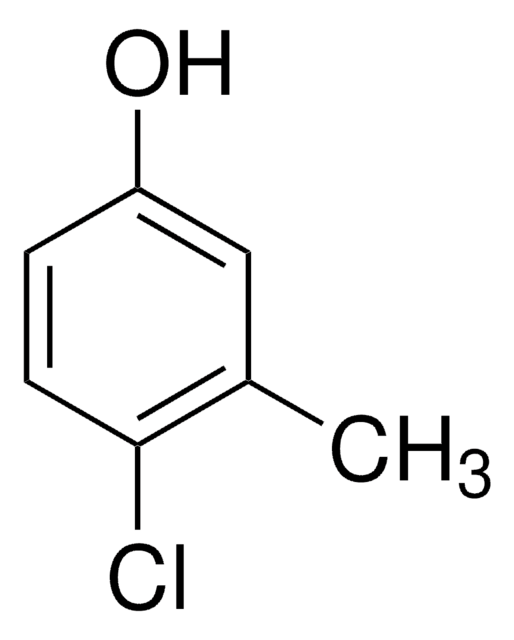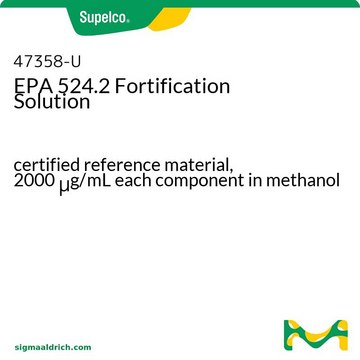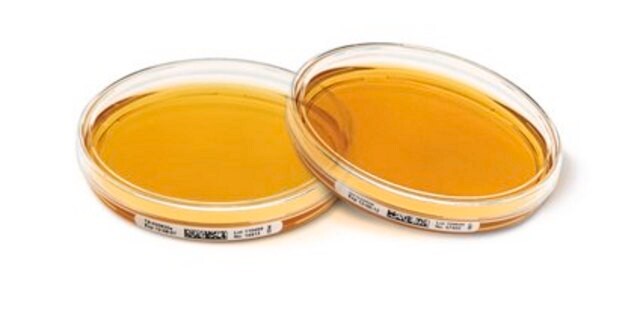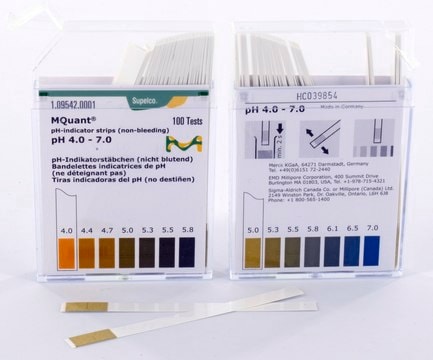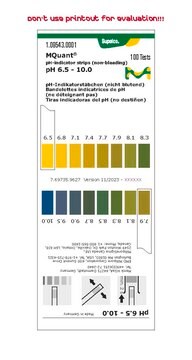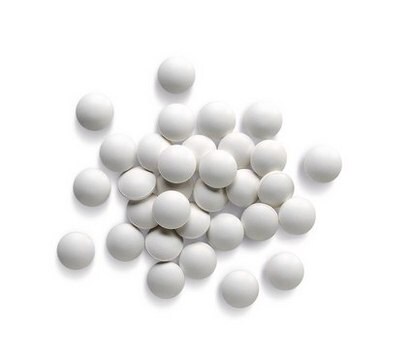8.02295
4-Chloro-3-methylphenol
for synthesis
Synonym(s):
4-Chloro-3-methylphenol, 4-Chloro-m-cresol, 2-Chloro-5-hydroxytoluene
About This Item
Recommended Products
vapor pressure
<0.1 hPa ( 20 °C)
Quality Level
Assay
≥99.0% (GC)
form
powder
autoignition temp.
590 °C
potency
1830 mg/kg LD50, oral (Rat)
>2000 mg/kg LD50, skin (Rat)
pH
6.5 (20 °C, 1 g/L in H2O)
bp
235-239 °C/1013 hPa
mp
63-65 °C
transition temp
flash point 118 °C
solubility
3.9 g/L
density
1.37 g/cm3 at 20 °C
bulk density
800 kg/m3
storage temp.
2-30°C
InChI
1S/C7H7ClO/c1-5-4-6(9)2-3-7(5)8/h2-4,9H,1H3
InChI key
CFKMVGJGLGKFKI-UHFFFAOYSA-N
Application
- Compression of mono-4 chloro, 3-methylphenyl phosphate ester and di-4 chloro, 3-methylphenyl phosphate ester through kinetic study: This study discusses a method using 4-chloro-3-methylphenol and POCl3 taken in a 2:1 ratio, exploring their kinetic behaviors (AR Teli, AA Khan, SH Dar, A Rashid, 2017).
- Commercially Important Chlorinated Phenols: Reviews the usage of 4-chloro-3-methylphenol among other chlorinated phenols in various industrial applications (K Smith, G El-Hiti).
Analysis Note
Melting range (lower value): ≥ 64 °C
Melting range (upper value): ≤ 67 °C
Identity (IR): passes test
Signal Word
Danger
Hazard Statements
Precautionary Statements
Hazard Classifications
Acute Tox. 4 Oral - Aquatic Acute 1 - Aquatic Chronic 3 - Eye Dam. 1 - Skin Corr. 1C - Skin Sens. 1B - STOT SE 3
Target Organs
Respiratory system
Storage Class Code
6.1A - Combustible acute toxic Cat. 1 and 2 / very toxic hazardous materials
WGK
WGK 2
Flash Point(F)
244.4 °F - closed cup
Flash Point(C)
118.0 °C - closed cup
Certificates of Analysis (COA)
Search for Certificates of Analysis (COA) by entering the products Lot/Batch Number. Lot and Batch Numbers can be found on a product’s label following the words ‘Lot’ or ‘Batch’.
Already Own This Product?
Find documentation for the products that you have recently purchased in the Document Library.
Our team of scientists has experience in all areas of research including Life Science, Material Science, Chemical Synthesis, Chromatography, Analytical and many others.
Contact Technical Service